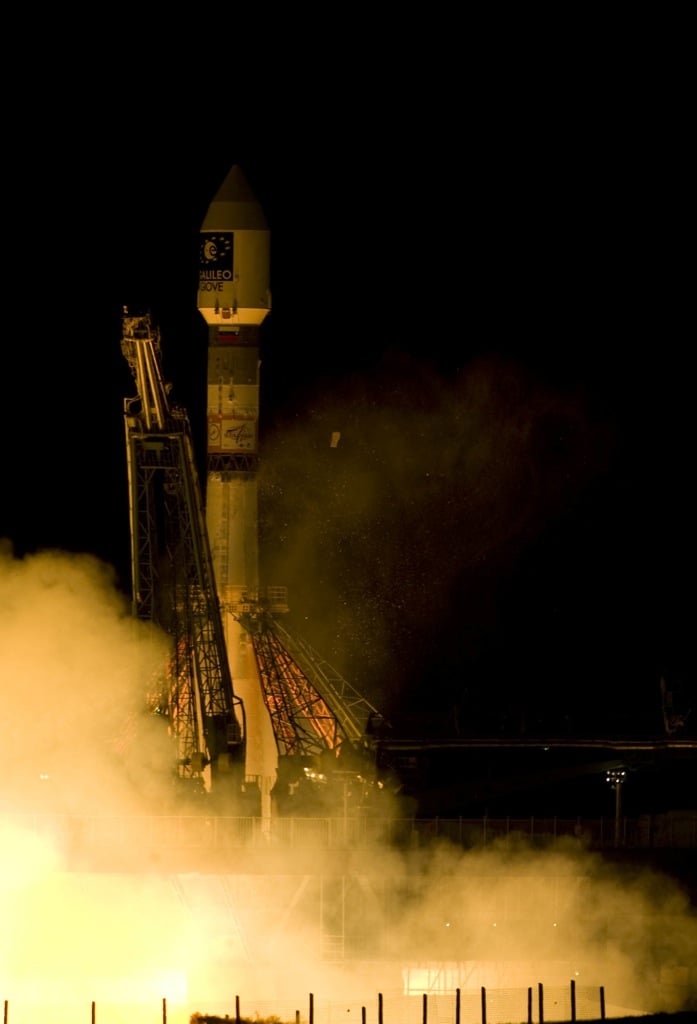Where you want to go depends on where you are. And if you've got a GPS system in your hands, and the most accurate clock ever sent into space overhead, you'll always know exactly where you are. ESA's GIOVE-B satellite blasted into space on Sunday, taking the next step for the deployment of a European satellite navigation system.
The GIOVE-B satellite lifted off from the Baikonur Cosmodrome on April 27th at 4:16 am local time (22:13 UTC Saturday), and placed the Galileo In-Orbit Validation Element B (GIOVE-B) satellite into a 23,200 km orbit.
Ground controllers confirmed that the satellite deployed its twin solar panels, and it was generating electricity within about 5 hours of launch.
On board GIOVE-B are two redundant rubidium atomic clocks, but these are just backups. The really accurate timepiece is the Passive Hydrogen Maser, which has a stability of better than 1 nanosecond a day. There's no risk of losing track of time with this - it's the most stable clock operating in Earth orbit.
GIOVE-B is still just a technology demonstration. It will be followed in 2010 by the launch of the first 4 operational satellites that make up the Galileo navigation system. The European plan to eventually have a constellation of 30 identical satellites operating in a constellation.
ESA News Release
 Universe Today
Universe Today
